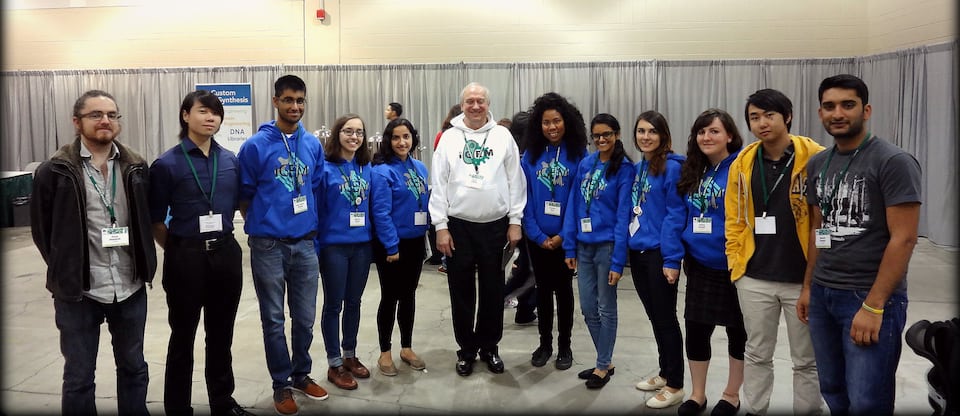U of T’s iGEM team has won silver at the international iGEM jamboree in Boston, MA.
The team’s project focused on bioremediation of tailing ponds in Alberta via characterized bacteria plasmids that would degrade a key toxic compound found in waste water.
Prior to the fall jamboree, iGEM successfully received 5000€ for their proposal submission to SYNENERGENE, a European program that supports responsible research and innovation in synthetic biology.
The project involved collaboration with Alberta communities, as well as TU Delft — a university from the Netherlands — on the Application and Techno-Moral Scenarios. They also worked with SiREM Guelph to study the “ins and outs of the bioremediation industry and commercializations of bioremediation products.”
Dawood Cheema, a physics and mathematics specialist, helped build the bioreactor and explained that the working prototype was presented alongside their poster at the jamboree.
“One of the criteria for winning gold was [having] a wiki [page],” said Pavel Shmatnik, one of the team’s leads.
The team appealed for gold but were told that their penalty for not having a running Wikipedia page outlining the details of their presentation was regrettably the reason for their loss of first place.
“We created a viable bioplasmid, but there were a lot of set back[s] so we did not have time to characterize them,” said team member Joanna Dowdell. “We ended up presenting working software and showed this to the communities, and explained that we couldn’t characterize [the bio plasmid],” she added.
The policy and practice team also received the award for best application design, and were asked to present on separate occasions about their design at the Jamboree. Prior to the competition, iGEM also presented at the Keepers of Water conference, in the presence of First Nations groups, in Alberta. The iGEM team members were asked to be part of the Keepers of Water national board committee.
The iGEM 2015 team members came from a whole variety of undergraduate programs, portraying how he project truly endorses collaboration from all scientific fields.
“Personally my background is from sociology, this was a massive learning experience for me, trying to apply my knowledge which was completely different” said Shmatnik
“iGEM really helped me with my lab skills, being a first year going into the project and now a second year coming out, my labs [now] make more sense and it’s much easier” added Christine Byrd, who studies human and molecular biology.
iGEM is looking to put together a team for next competition, and will soon look to new undergraduates for proposals for this year’s projects. Their first recruitment event is happening this Friday, October 30 from 5 pm to 8 pm in room WE54G in New College.
Correction (October 29, 2015): This article has been updated to correct inaccurate wording.


